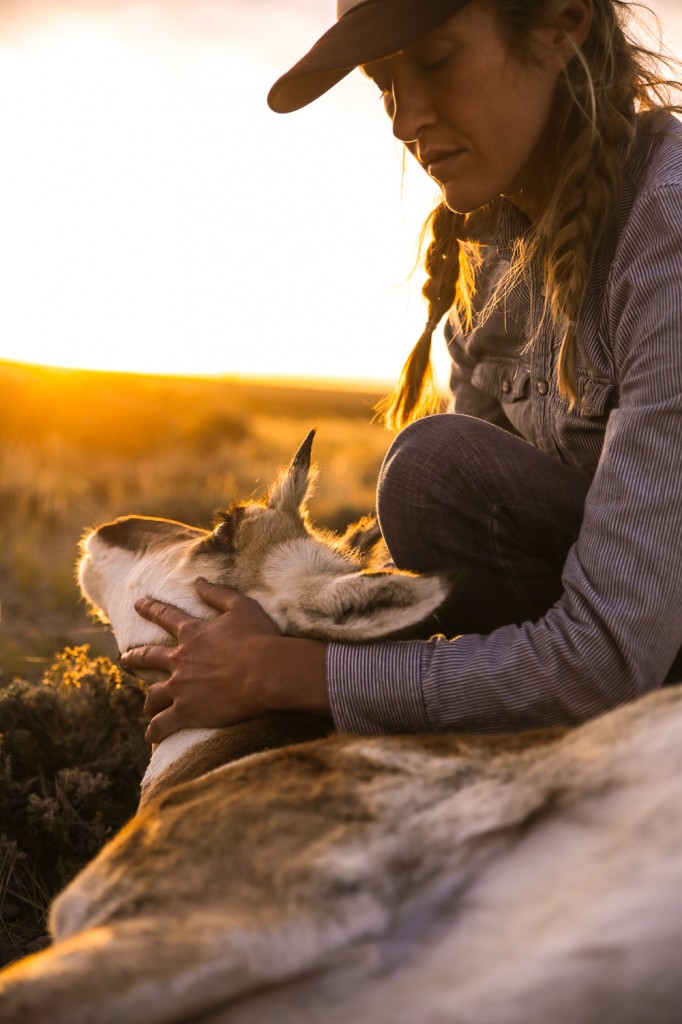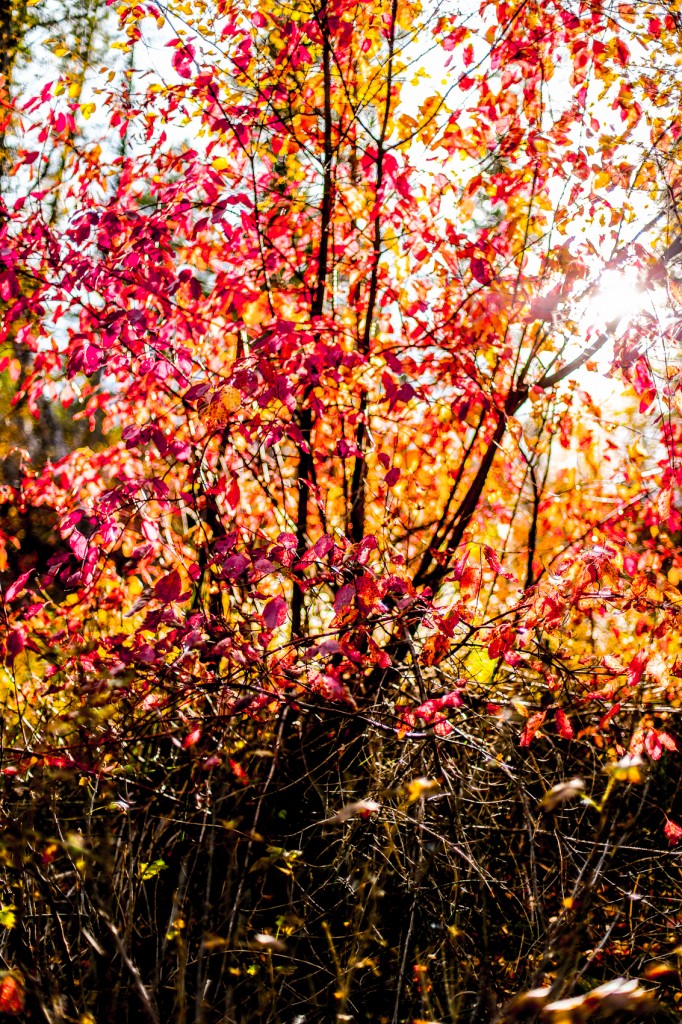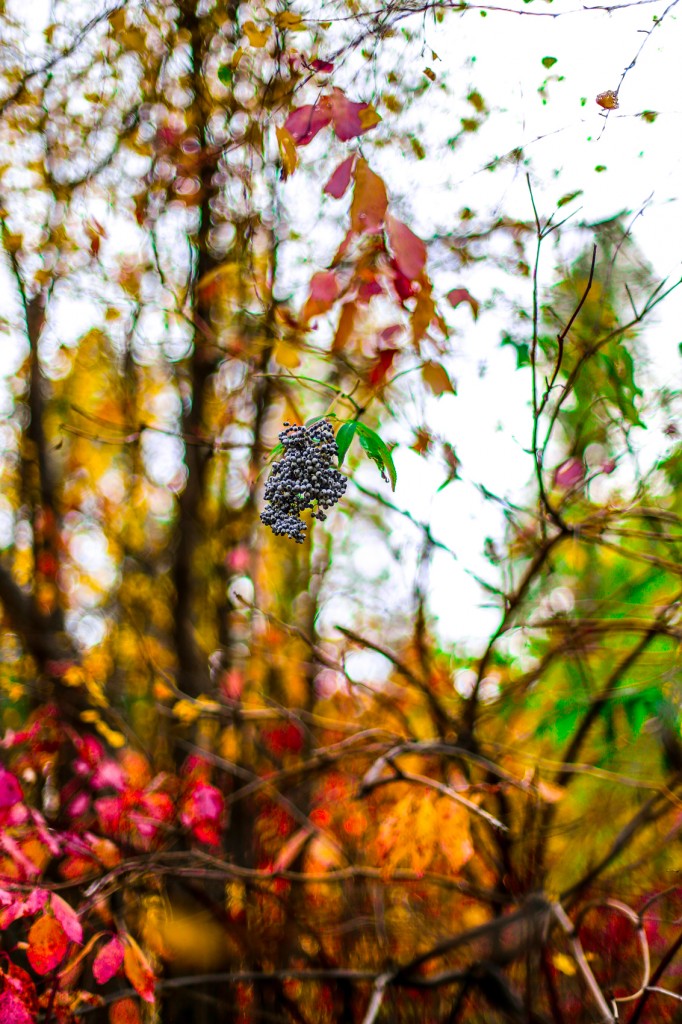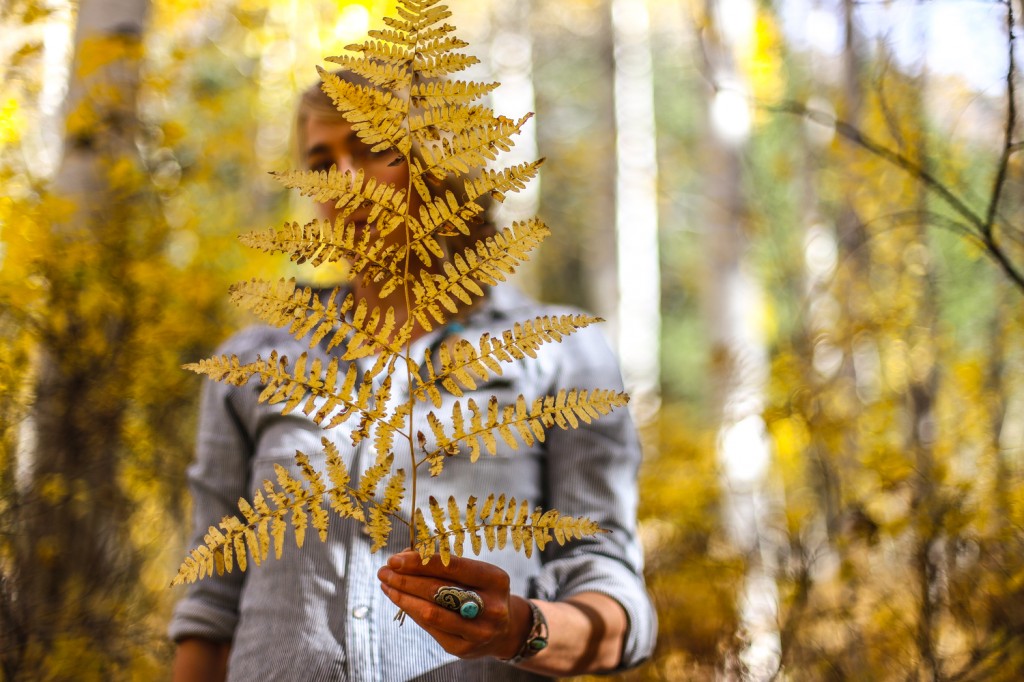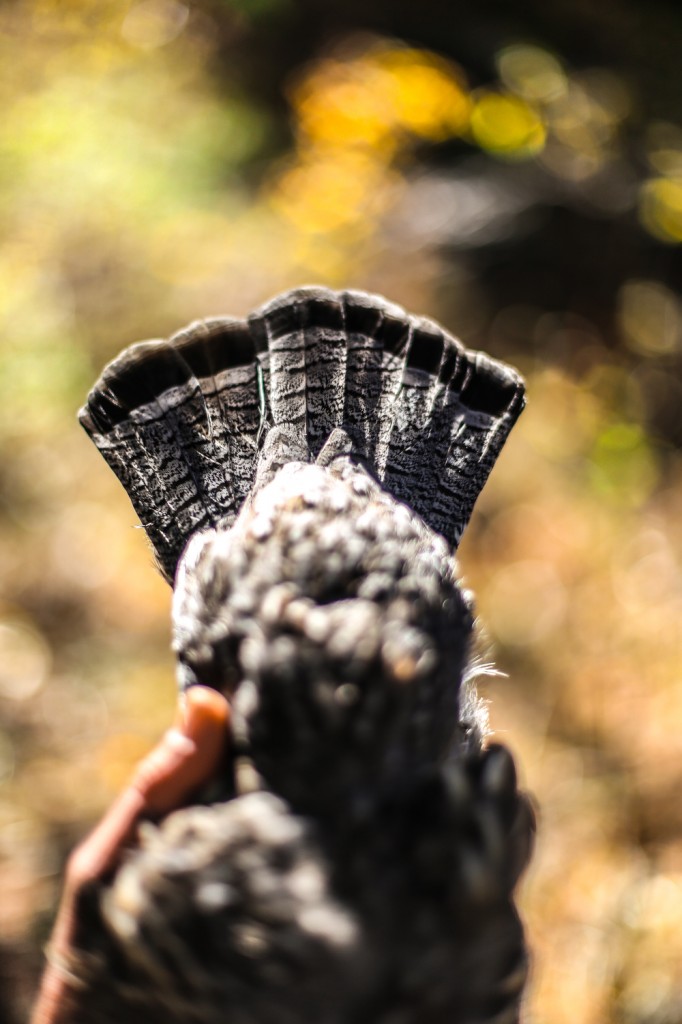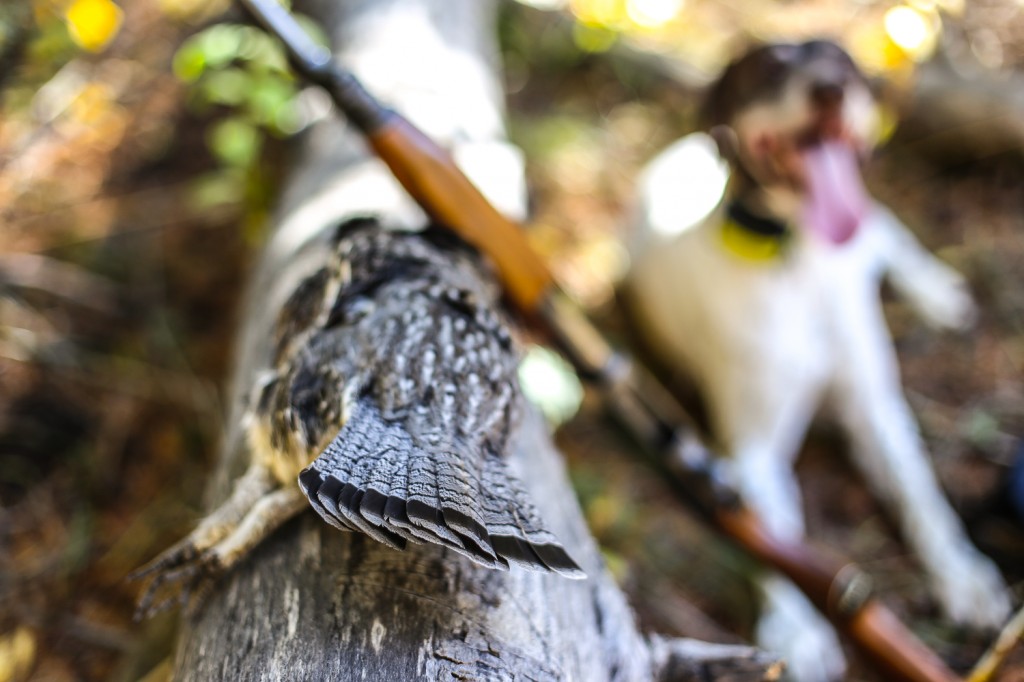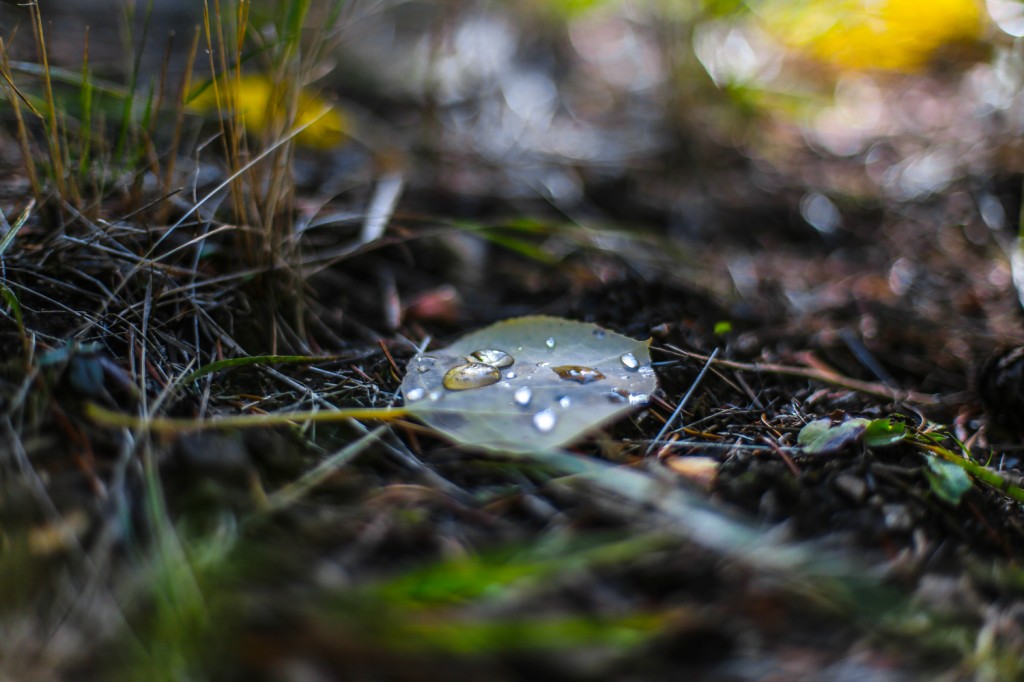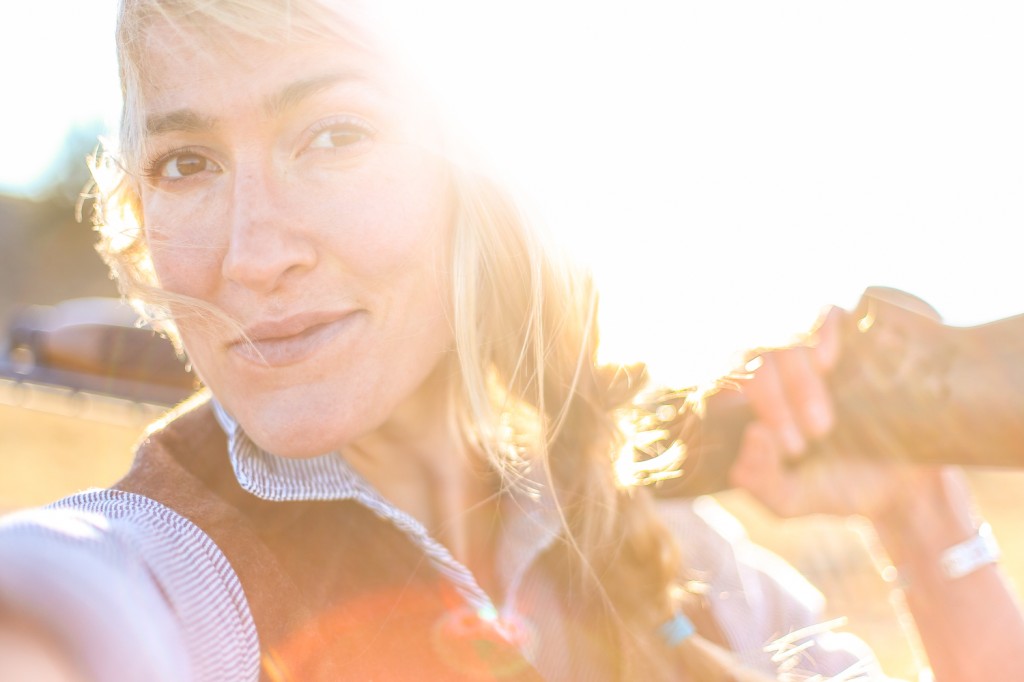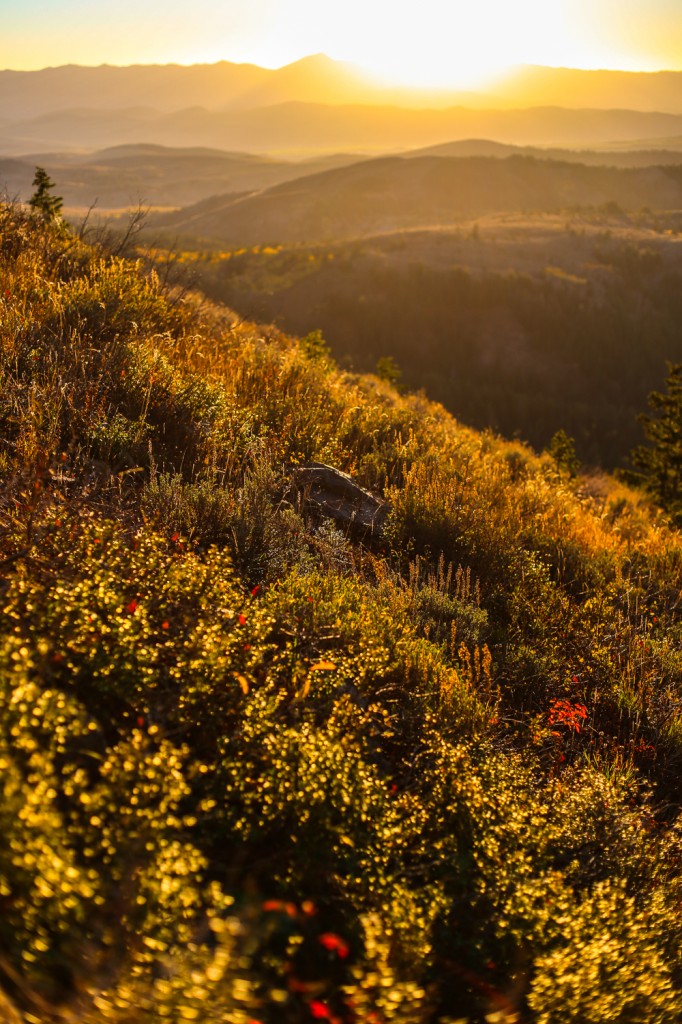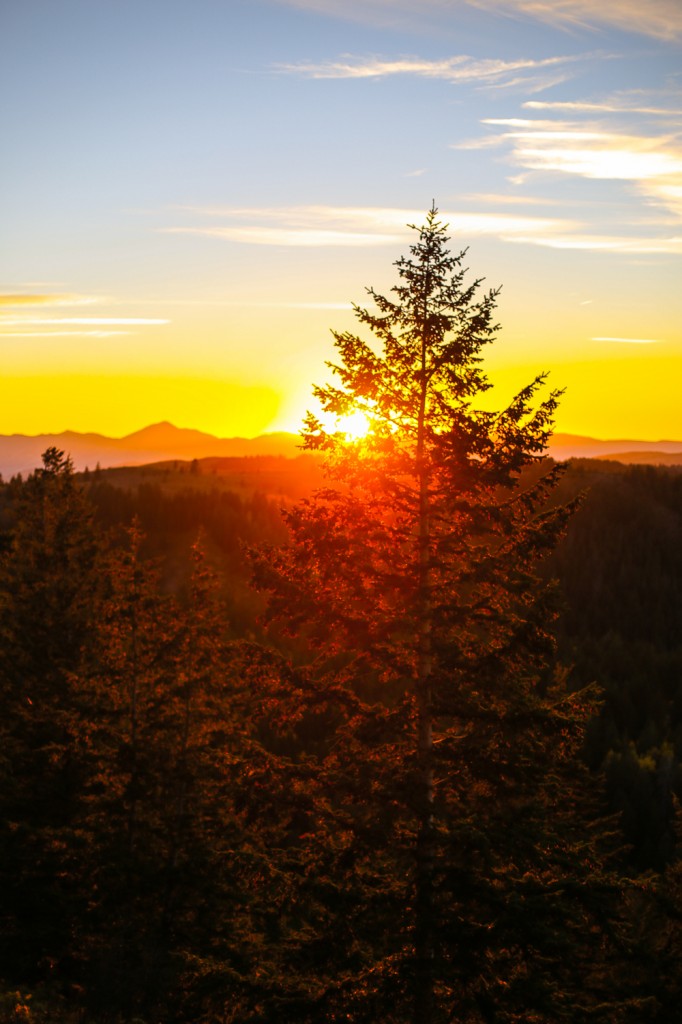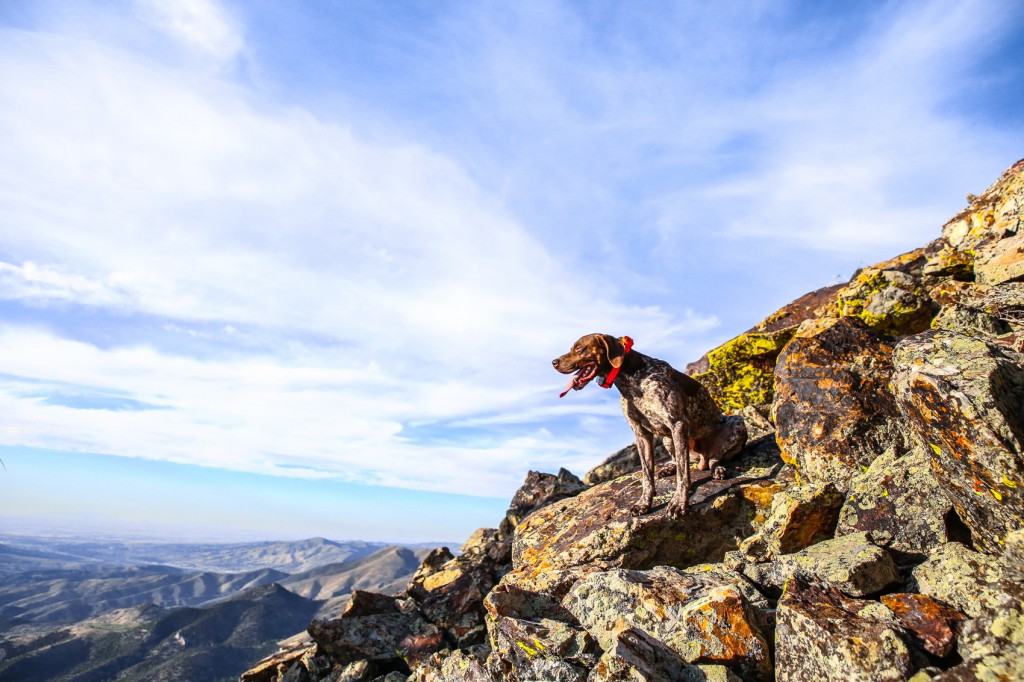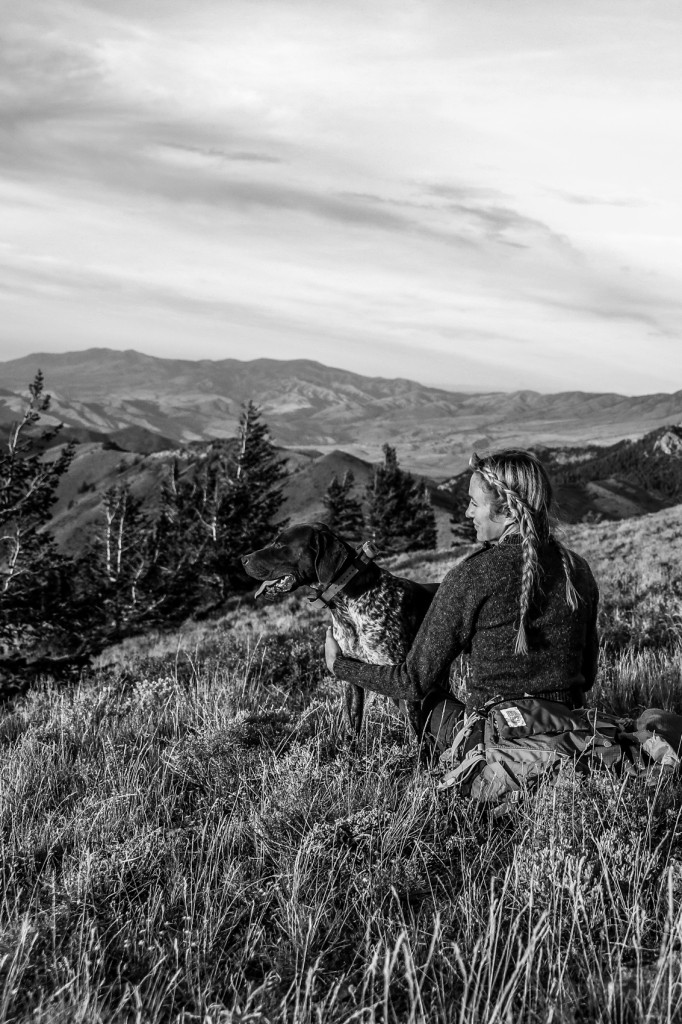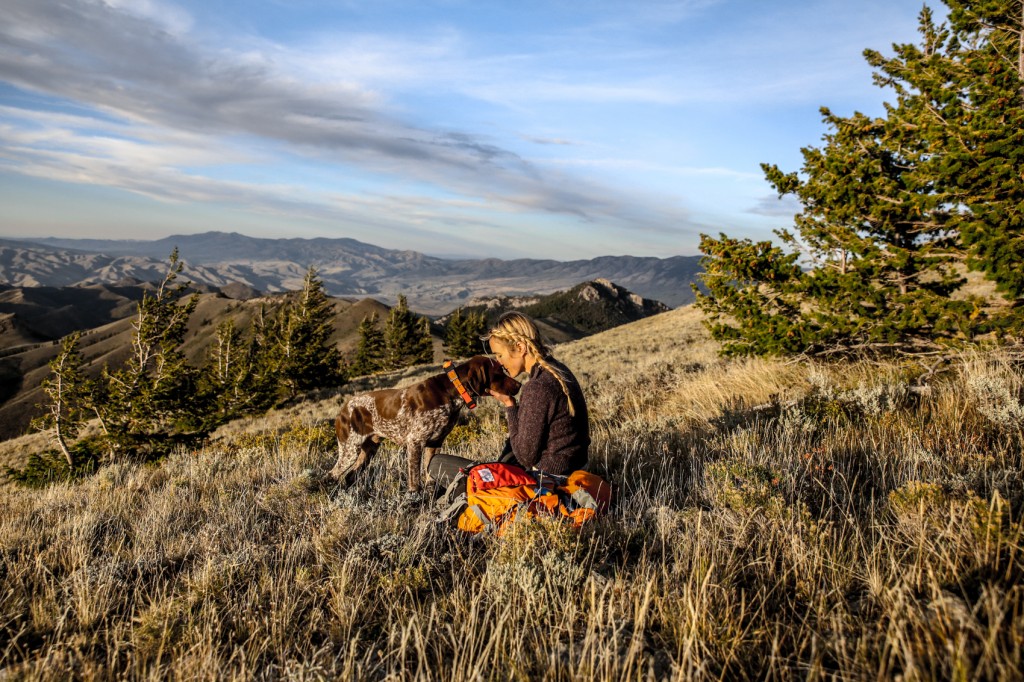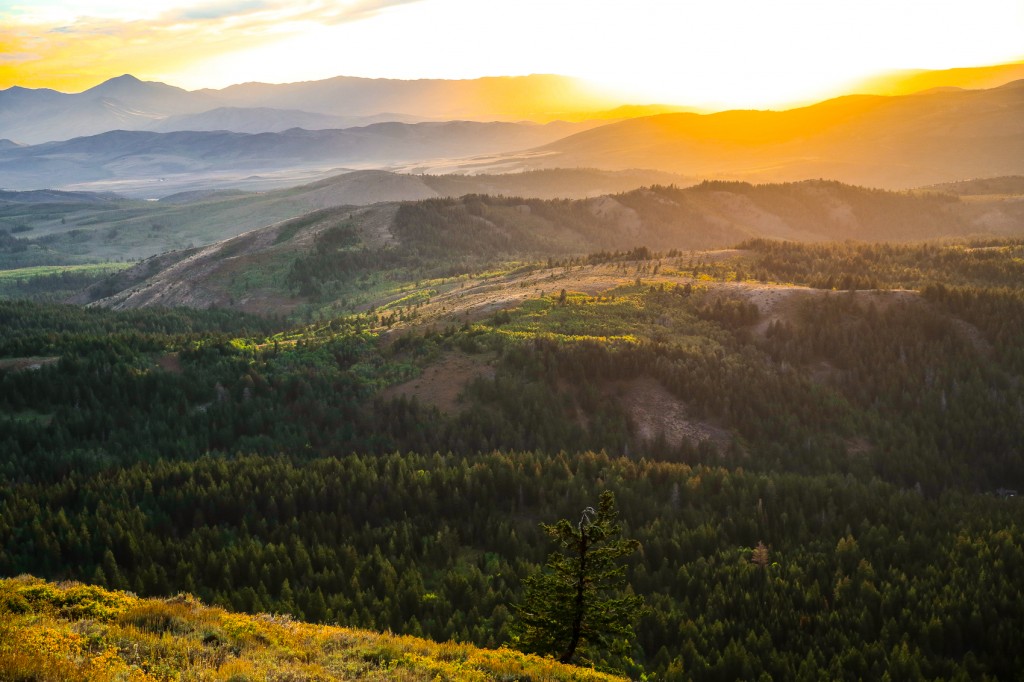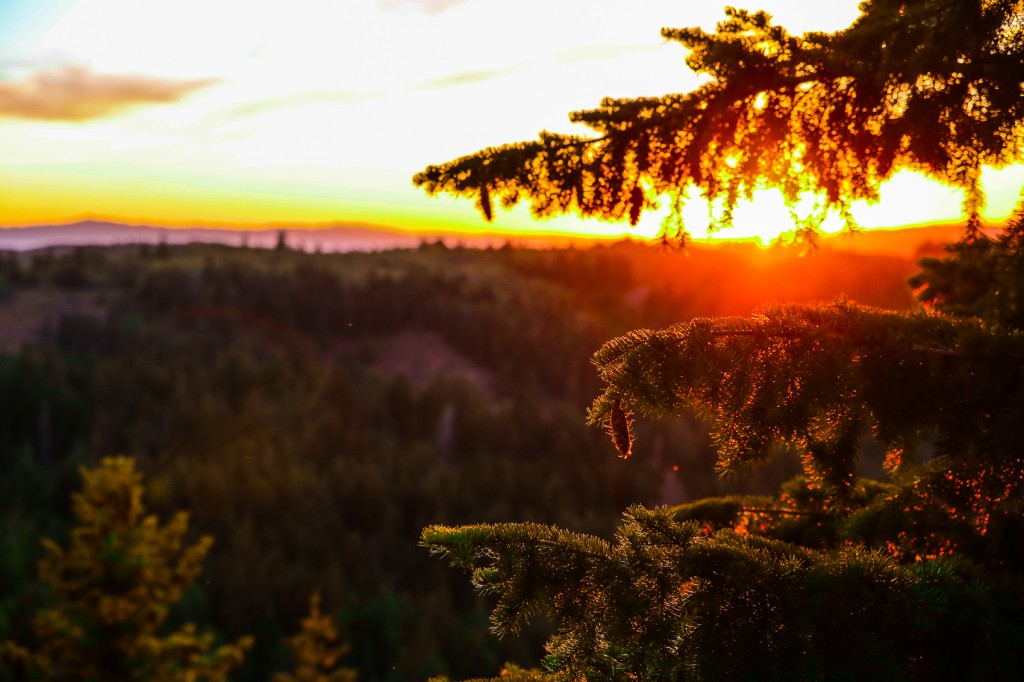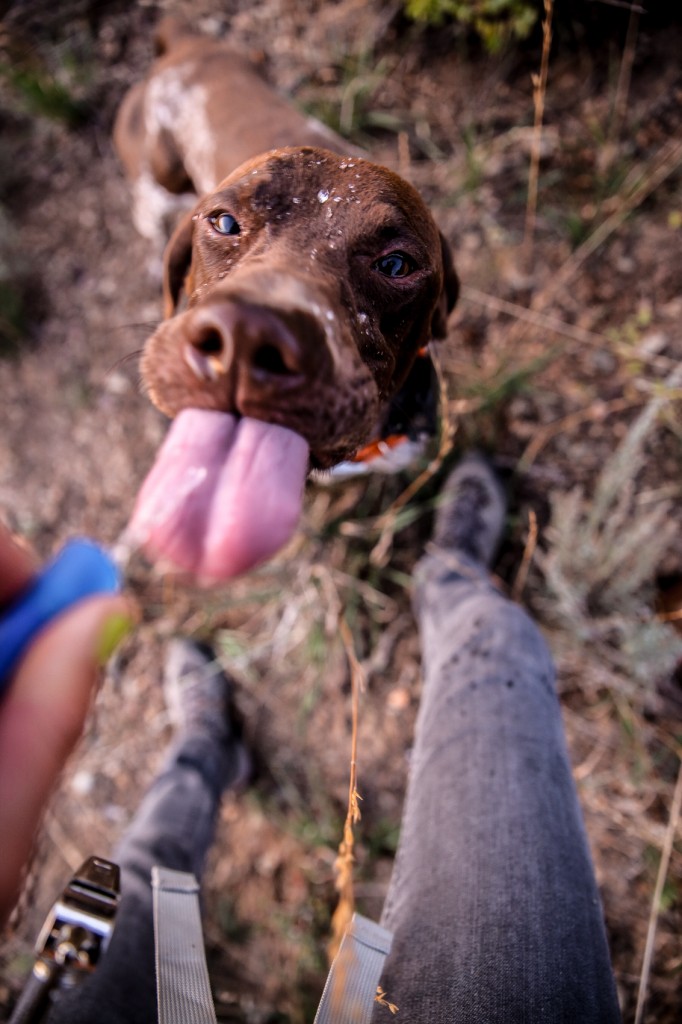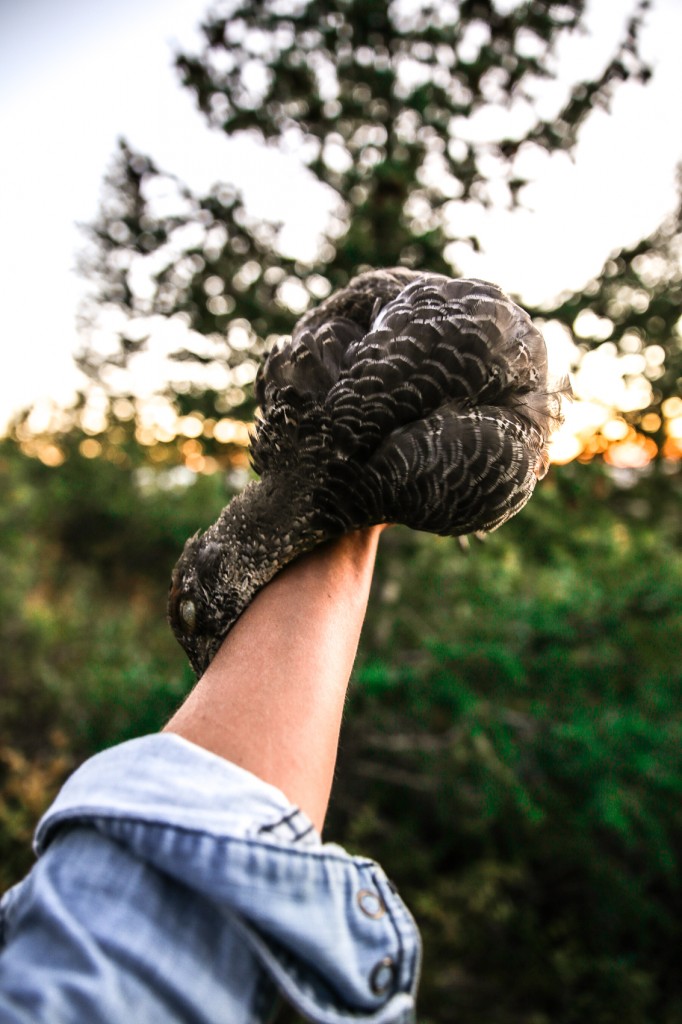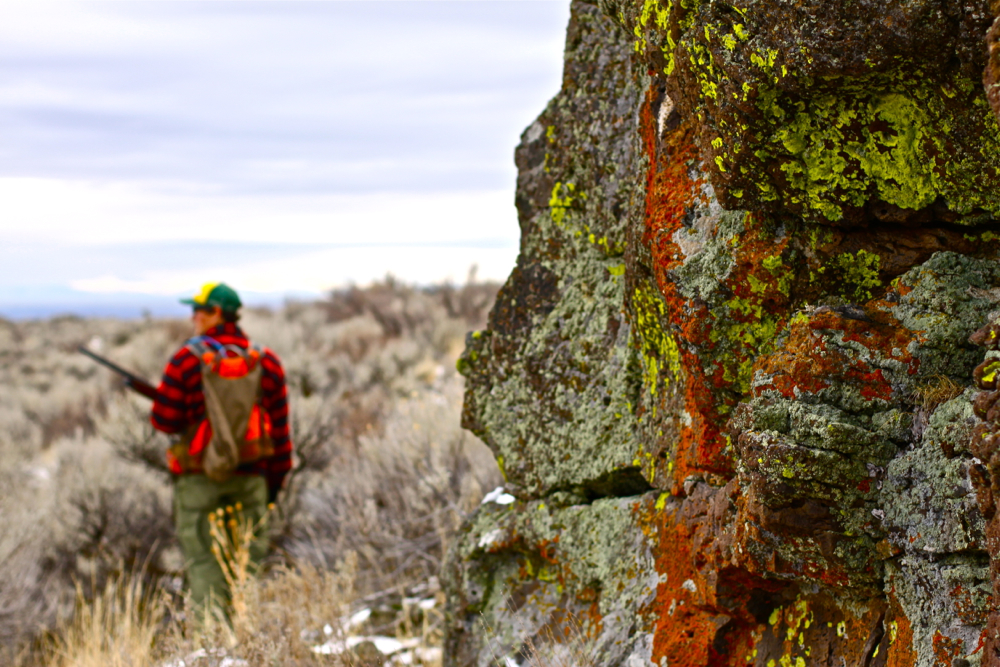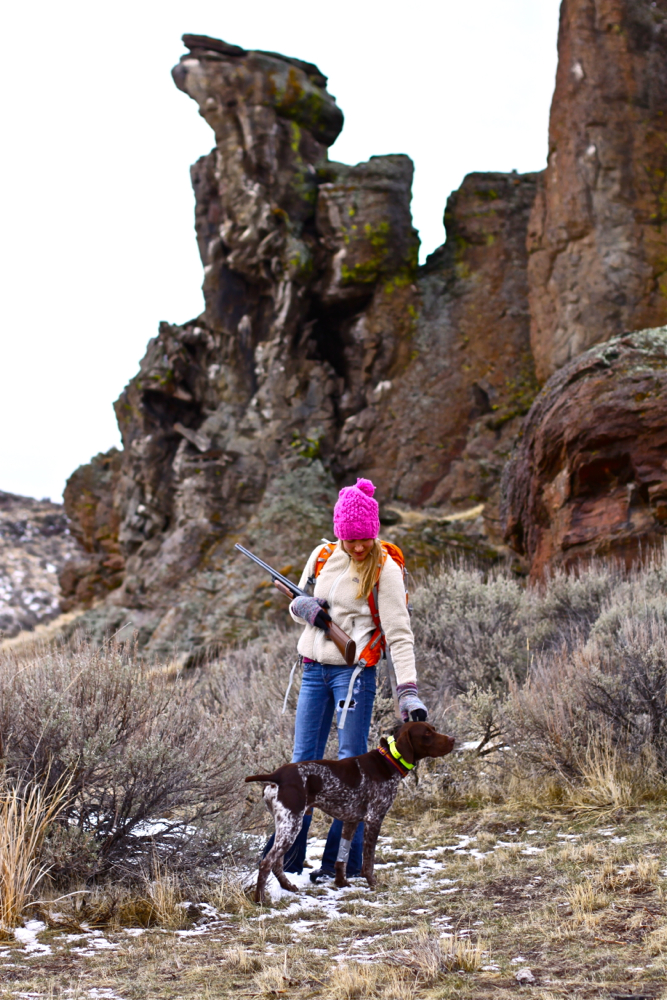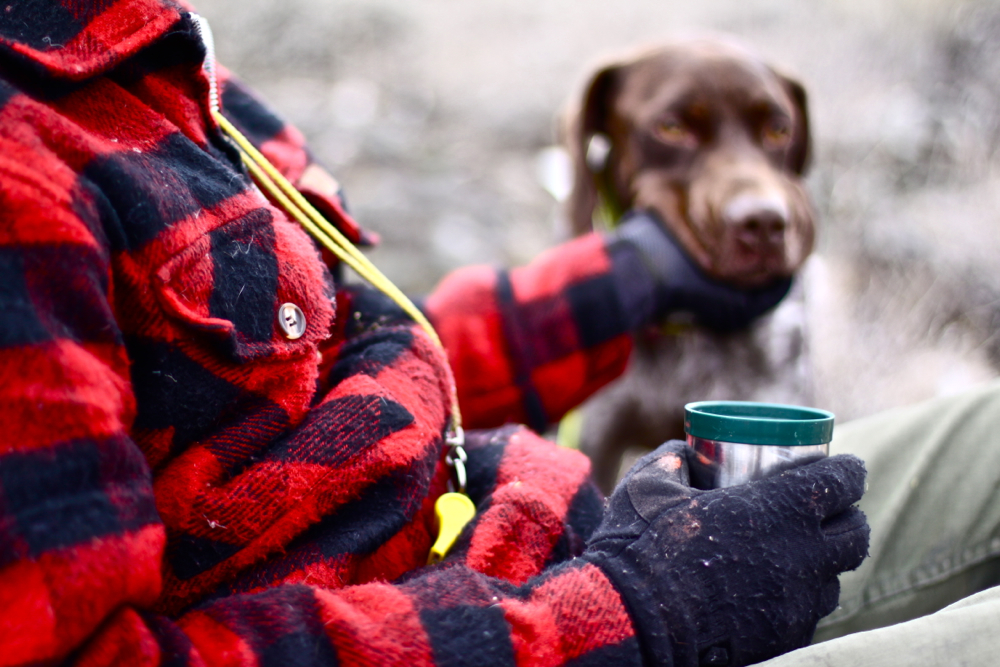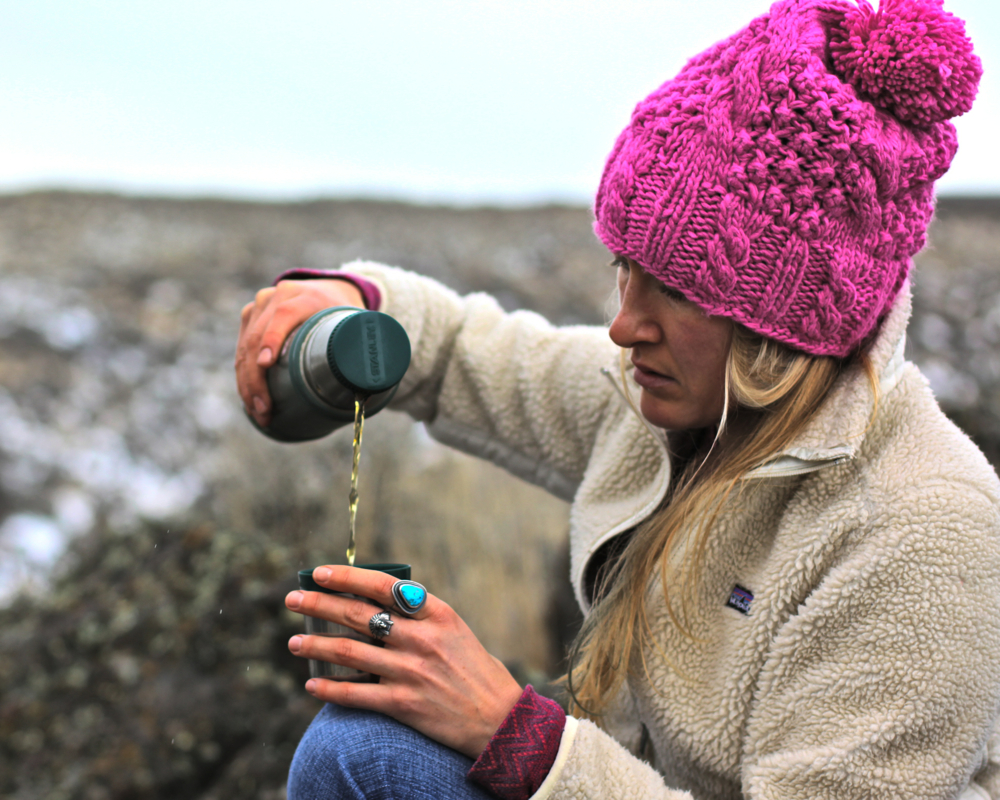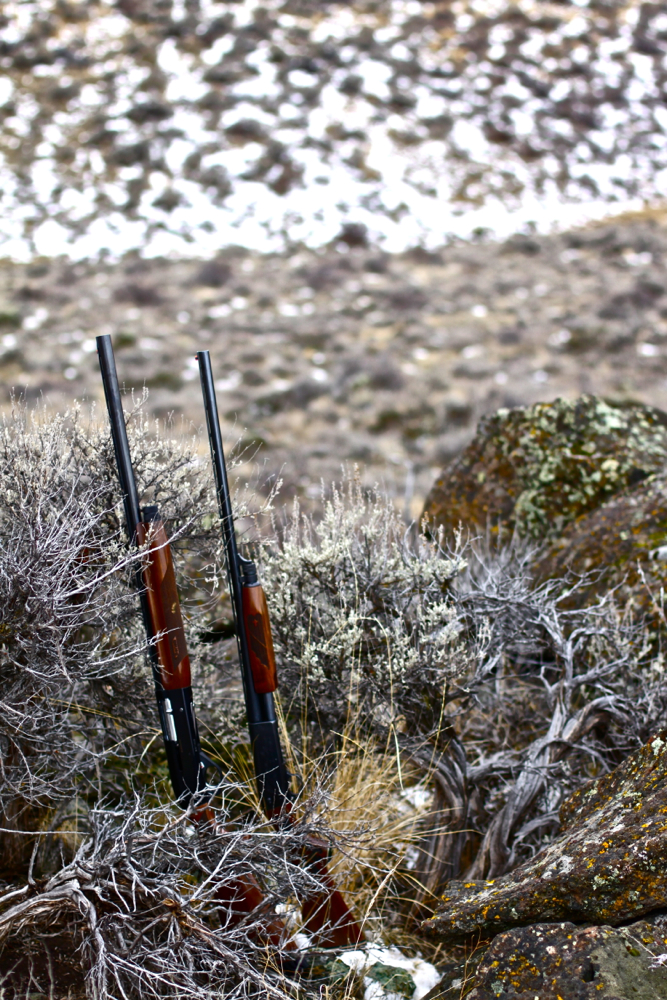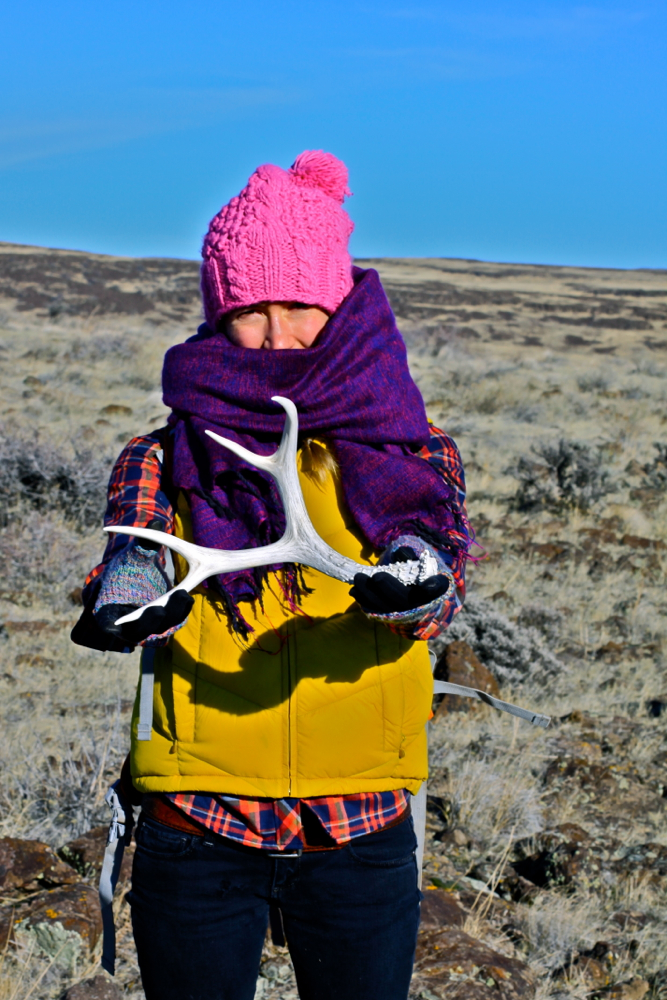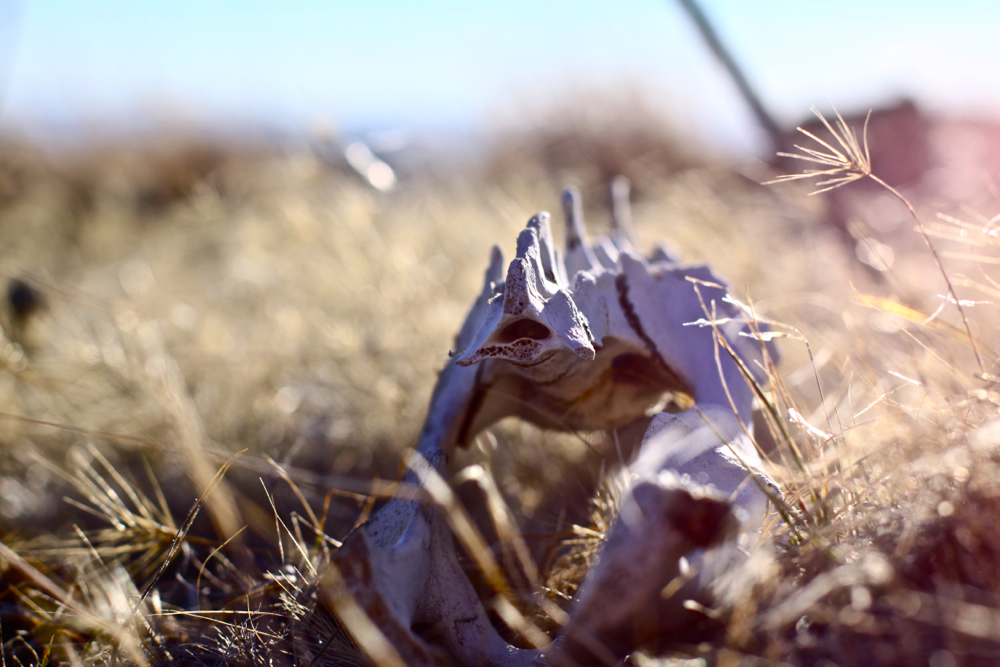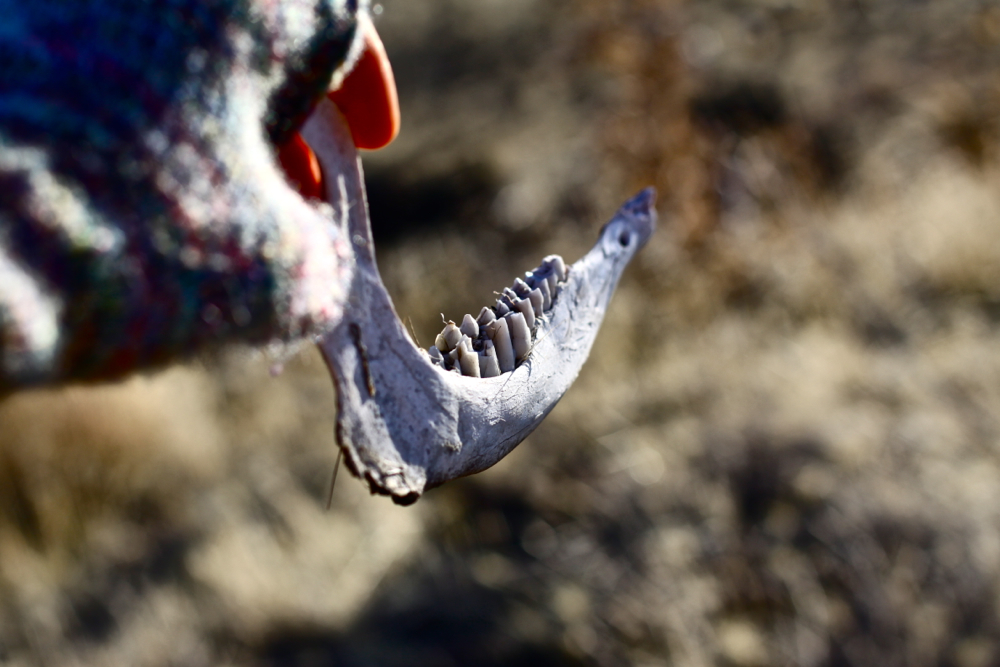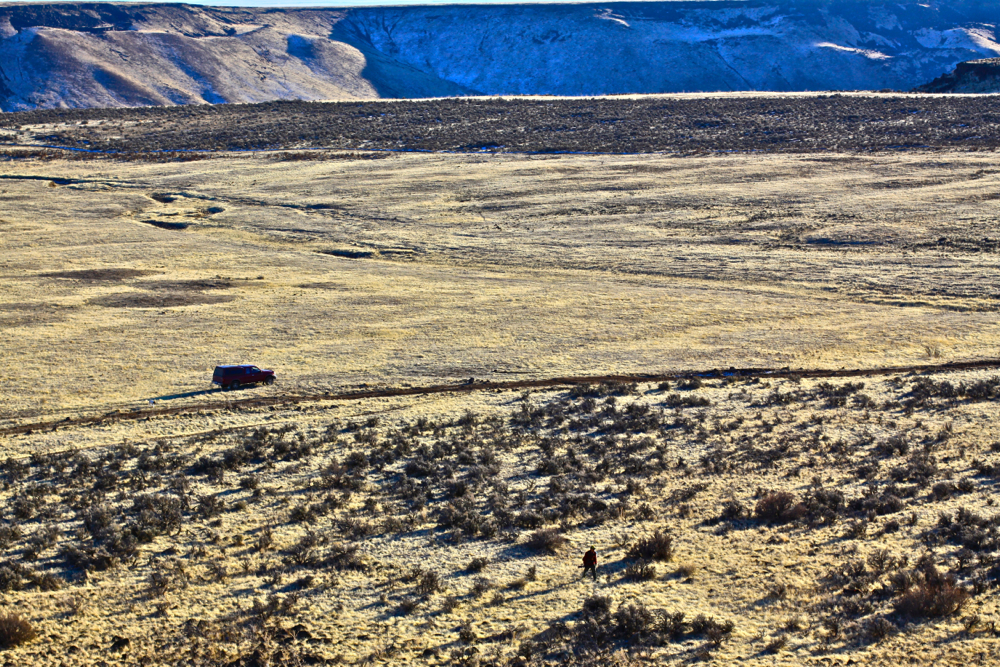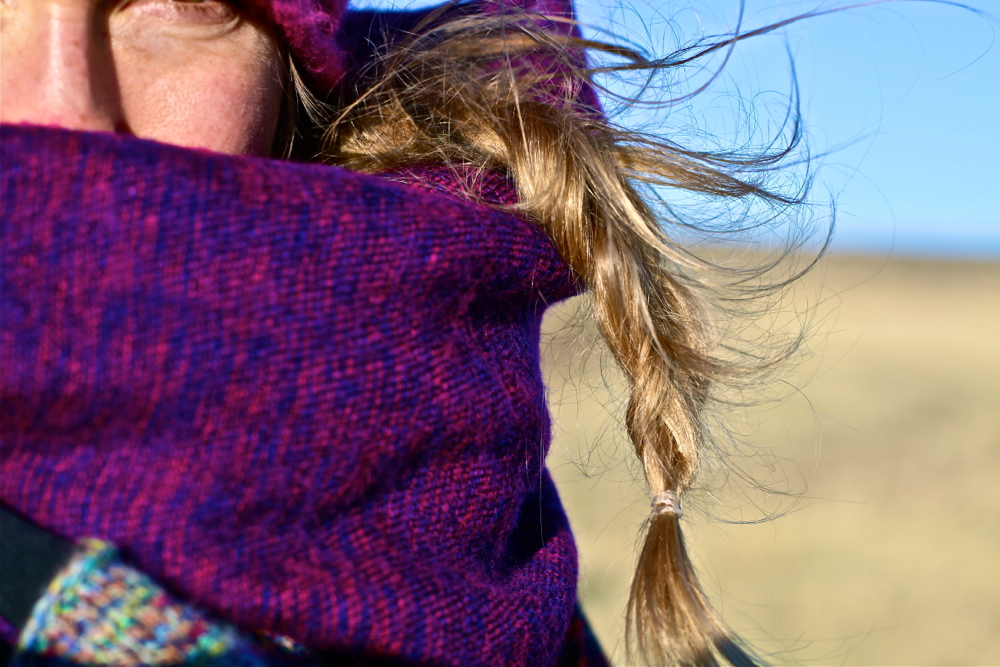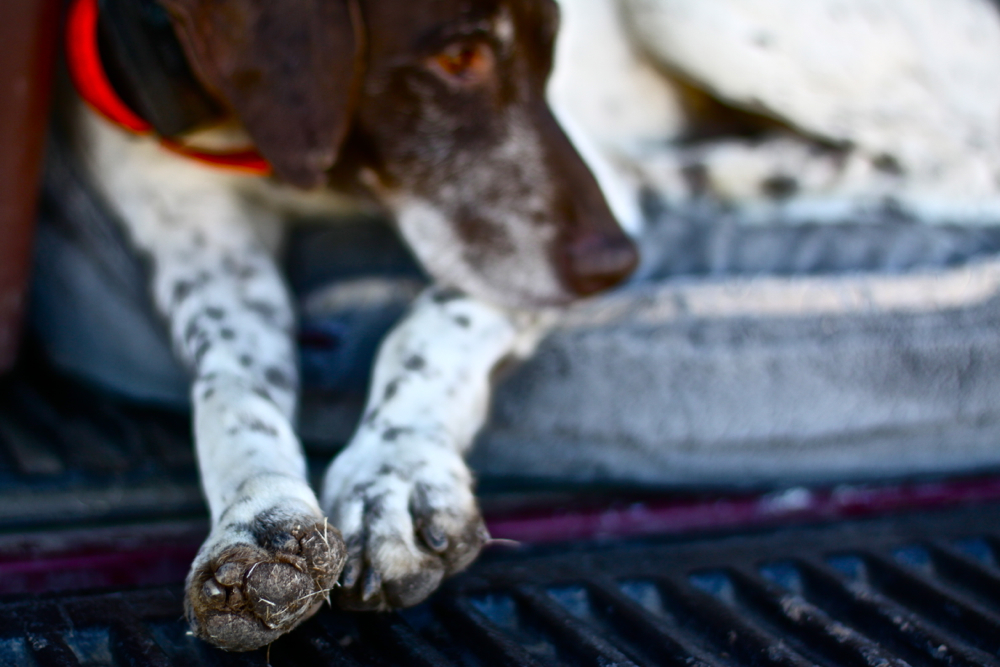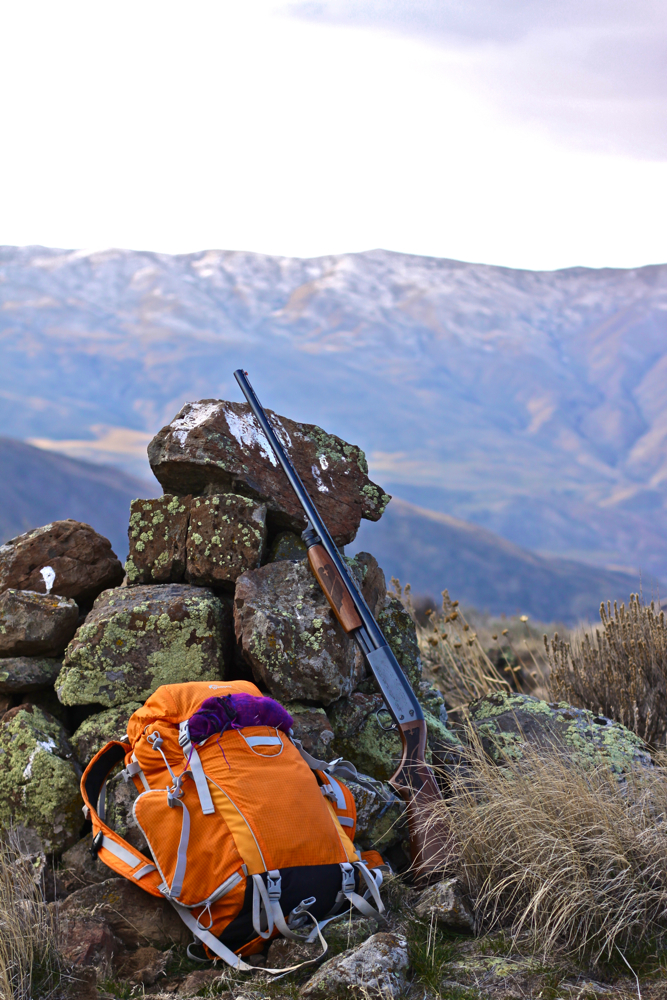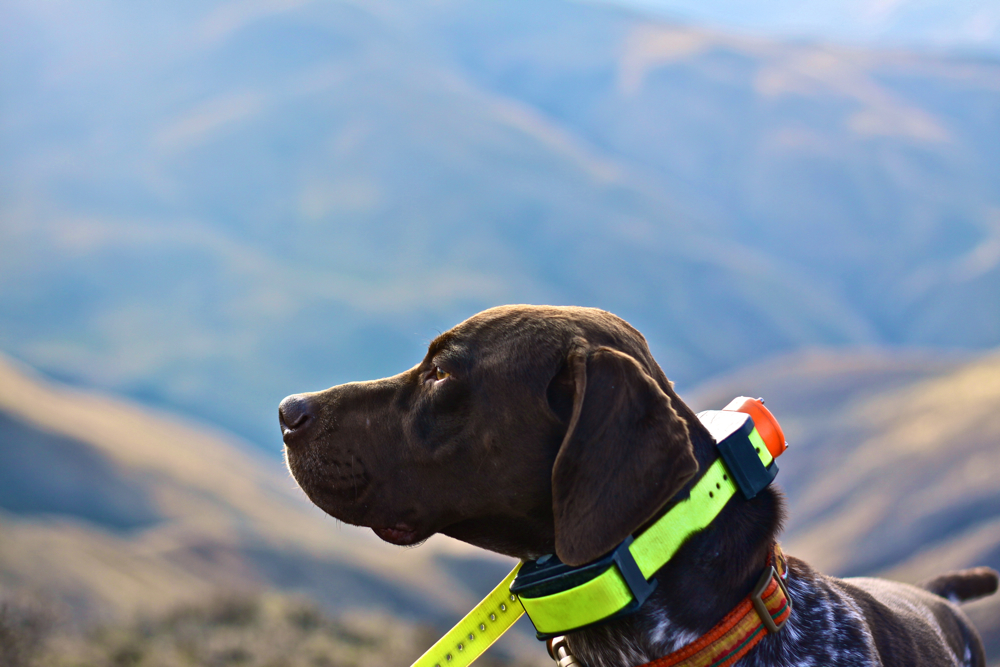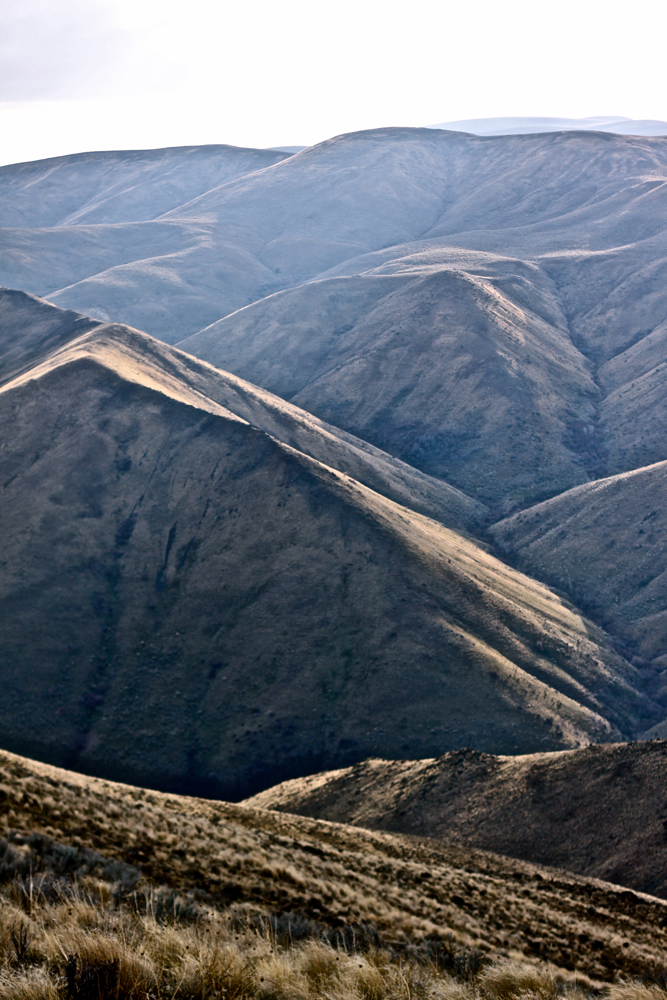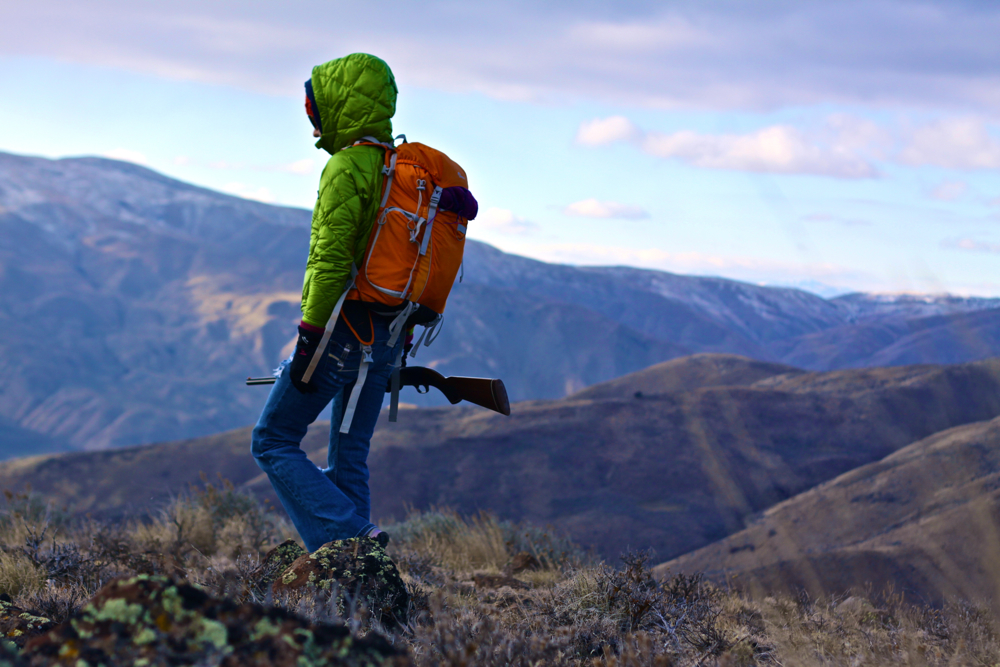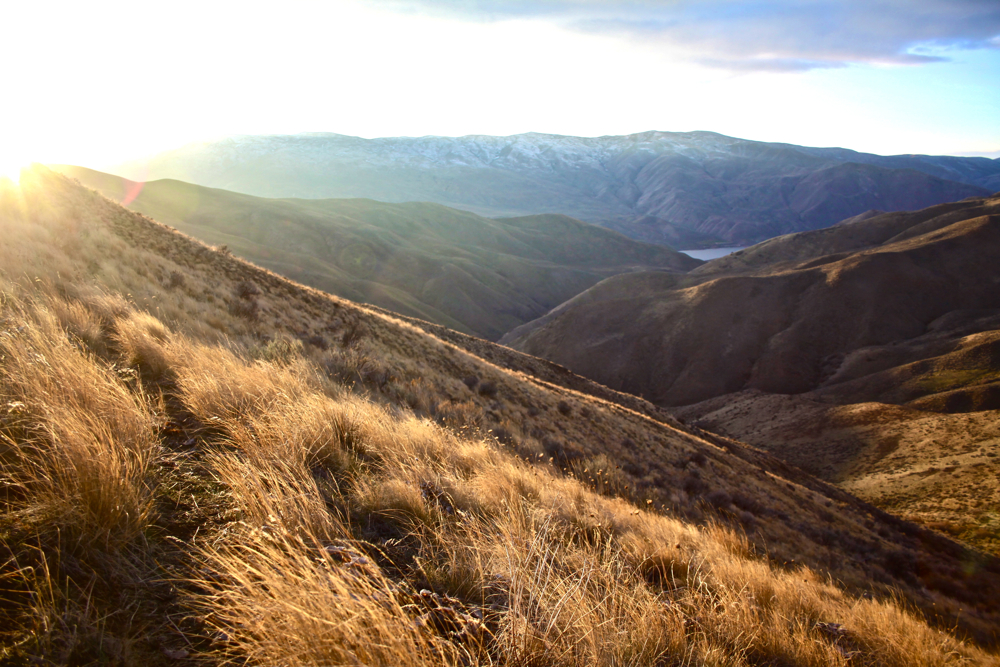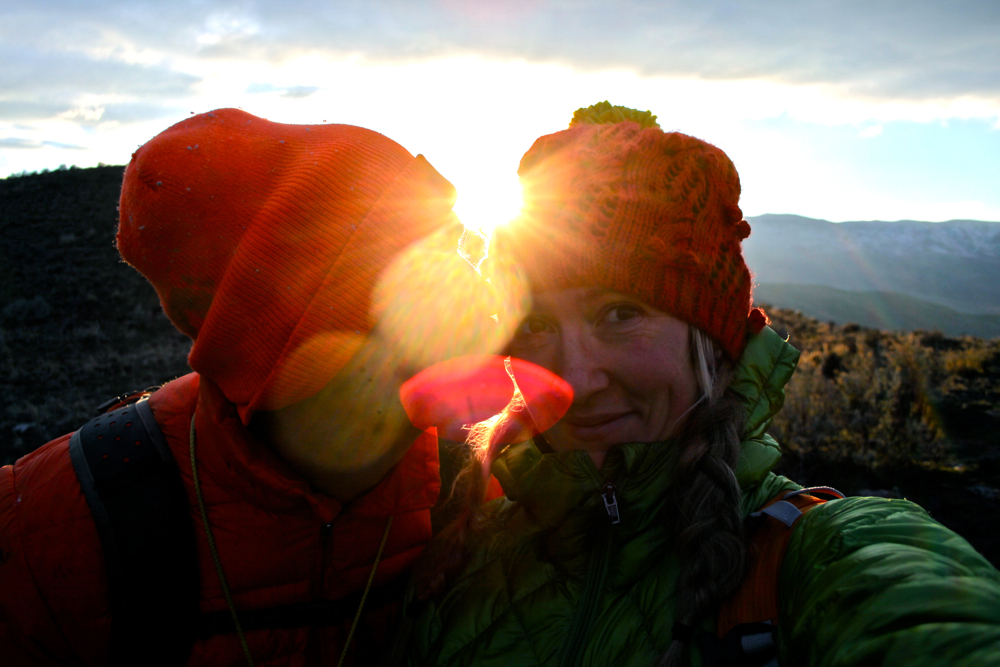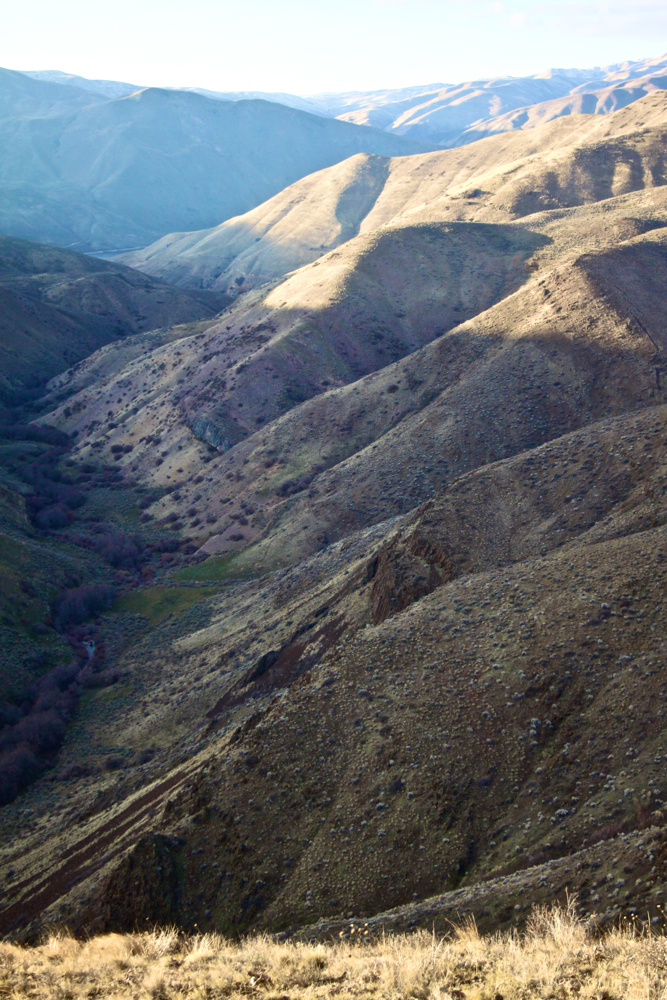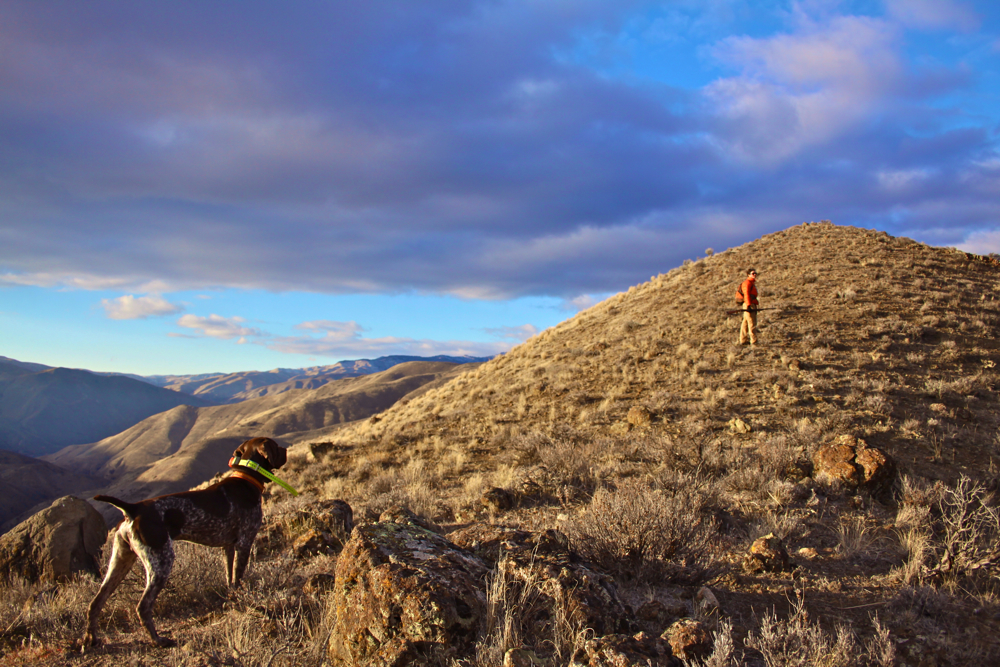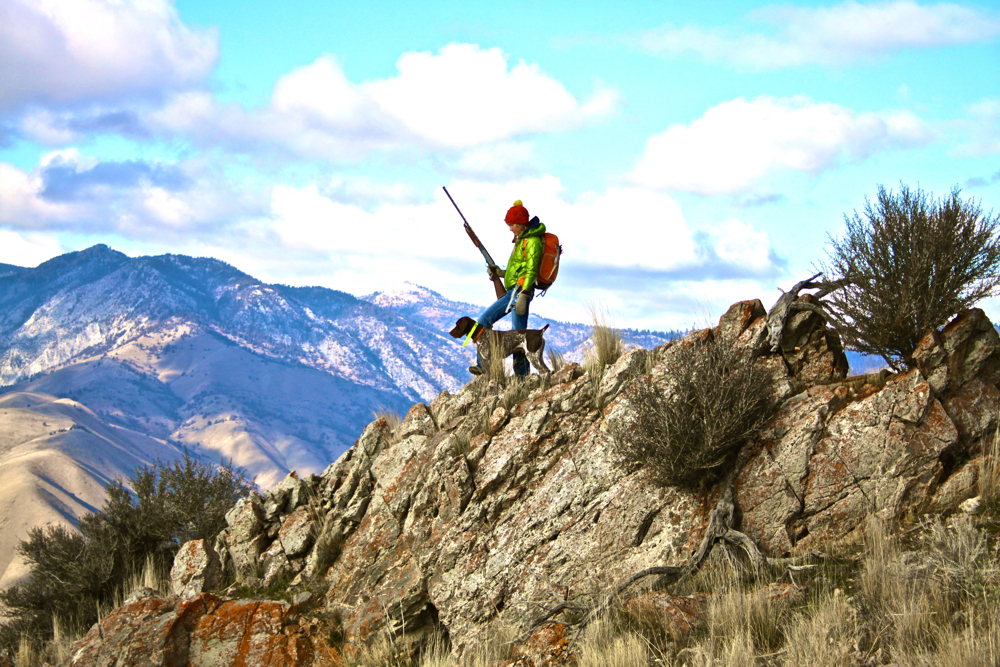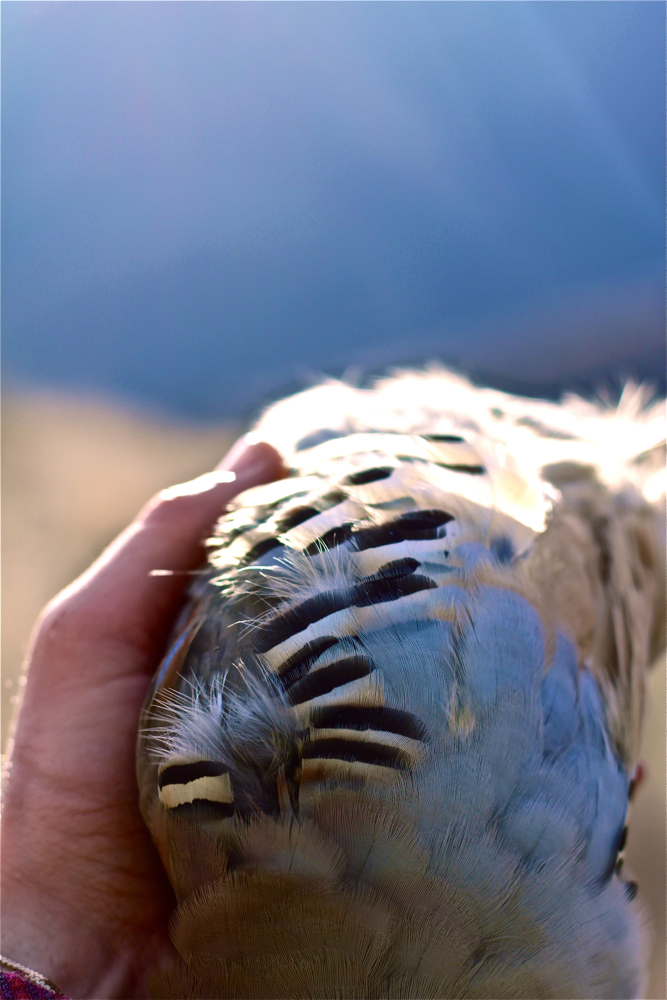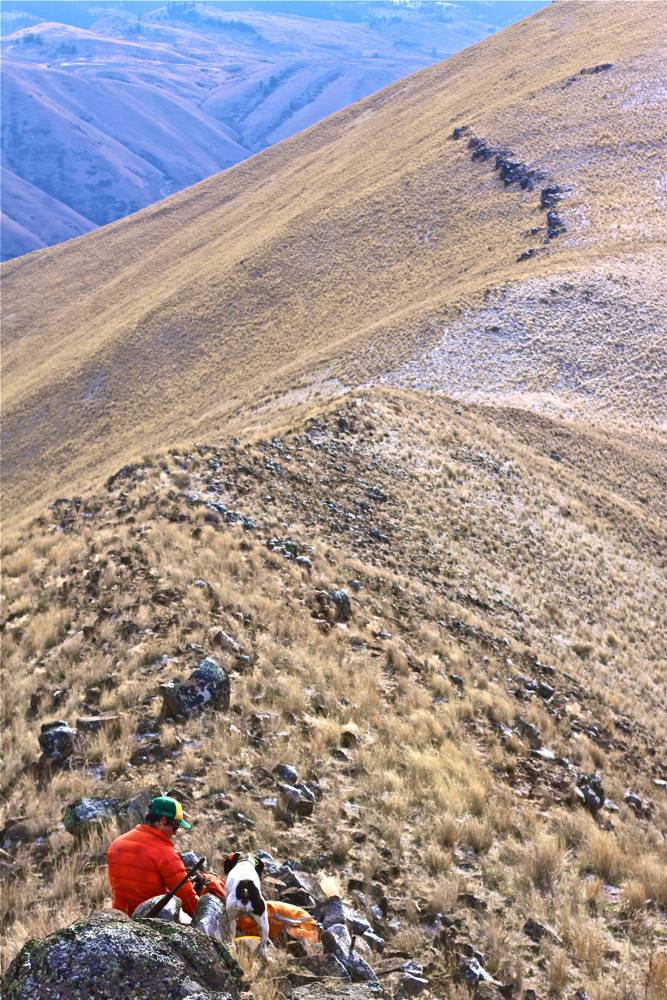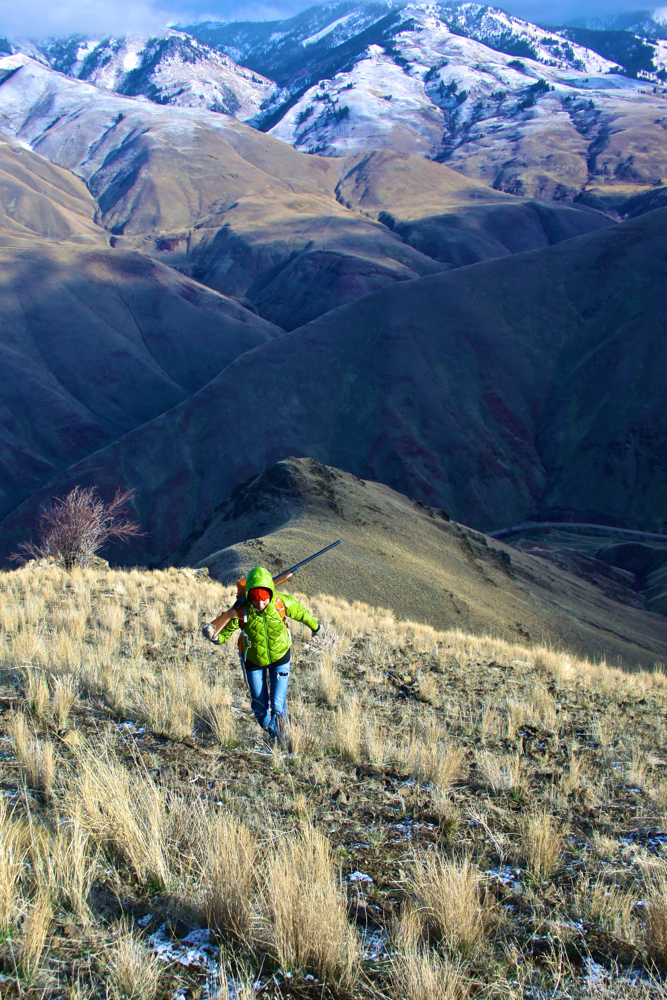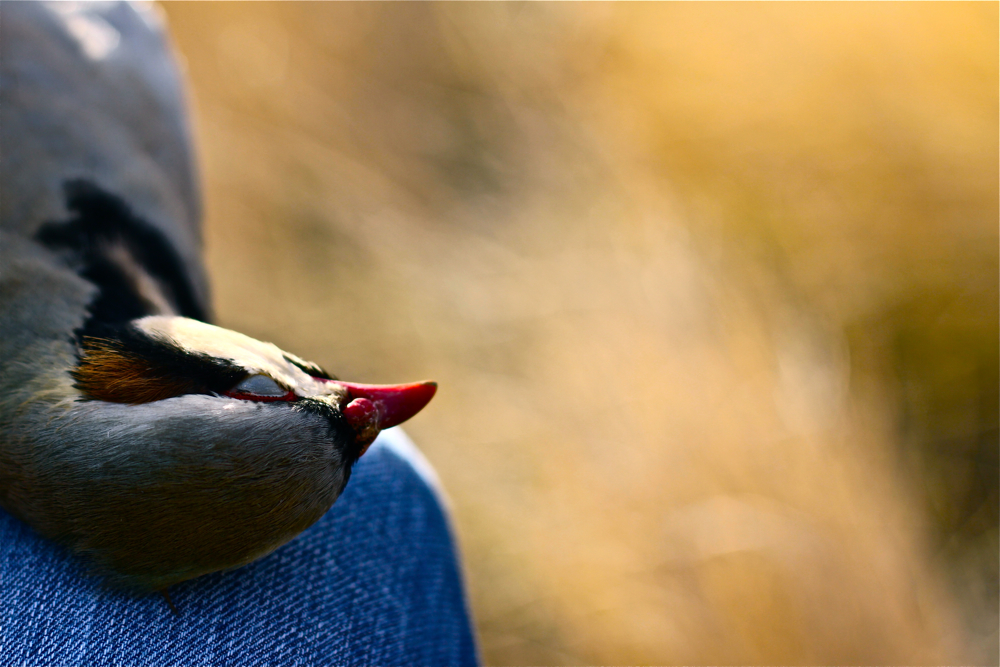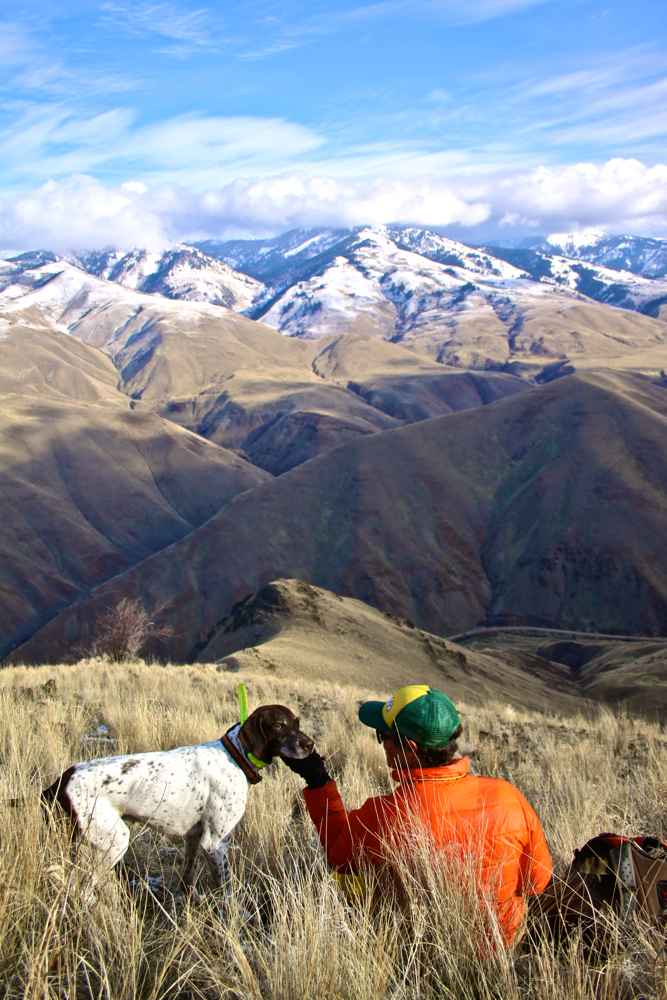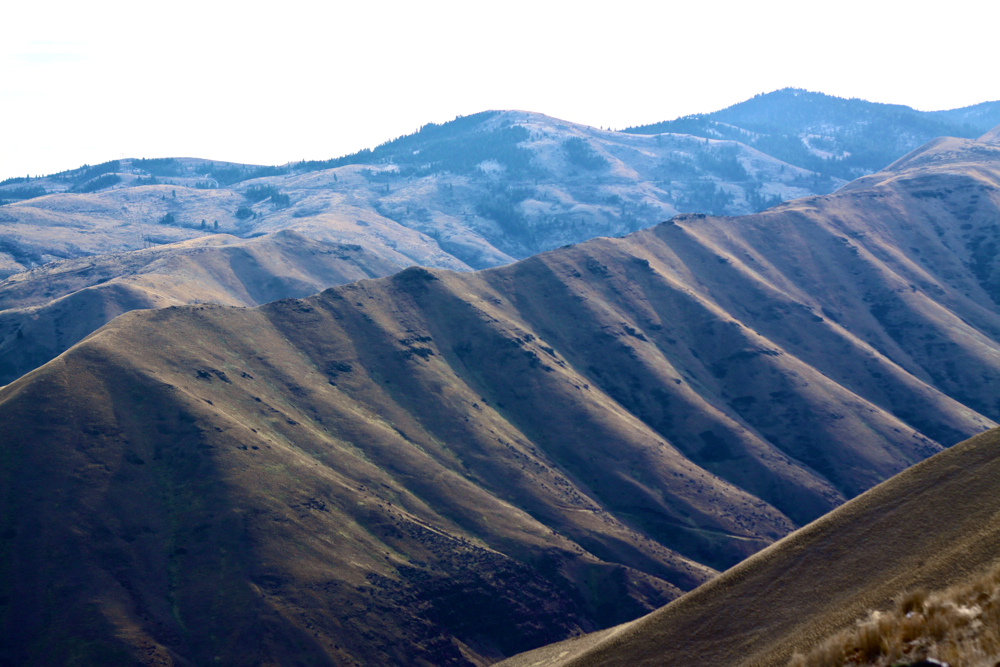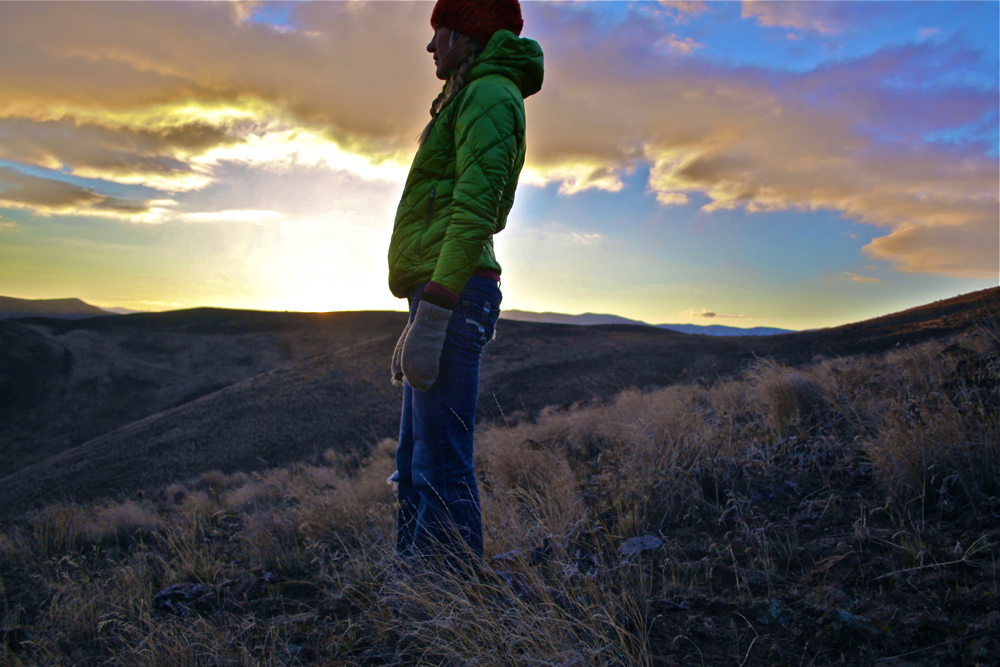We camped within a quarter mile of where Robert shot and field dressed his antelope while we were in Wyoming the other week. In our tent at night, after we had crawled into our sleeping bags, after our friends had done likewise, after the fire had grown cold, after the moon rose, I could feel them coming (a buzzing intuition in my bones), I knew they were following the scent of blood on the wind, noses pointing true with their bushy tails streaming behind them like wild arrows; the coyotes. Nothing goes to waste in nature and what pieces we left behind of our antelope — the yawning curve of rib cages, sinuous neck attached to tidy head, the knobbed line of spine pressed into dirt, tufted hide — all of those remainders serve a purpose.
I lay there in the night, bundled in goose down beside my husband, and listened to a festival of coyotes under ancient starlight. While I listened, I pondered the rites and rituals that hold hands with the act of hunting for food. I thought about my five unsuccessful stalks that day. I recalled my frustration after hard work led to failure. I remembered the successful stalk I had in the evening, every painstaking moment of it. I thought about how cleanly the bullet I shot from my rifle had pierced two lungs and how I had watched, through a scope, as the dust rose up from the sage, displaced into the wind by the impact of an animal that had died a good and instant death. I thought about the warm light from a sinking sun on her magnificent face as I sat in the dirt beside her and held her head in my hands. I thought about the coarse depth and scent of her fur, the softness of her white cheek.
I lay there in moon glow, listened to the chorus of feasting coyotes, and I thought about how wolves hunt. I thought about how wild things tear each other limb from limb while hearts are still beating in broad chests, I thought about the ferocity of fangs and claws, the images I have seen of bison with torn hamstrings sinking down into crimson snow. I pondered how elegant and kind a bullet can be.
I remembered my patient wait for a doe in profile. I recalled why I never want my food to taste like fear. I promised myself, in the dark of the night, under the sigh of wind on a nylon tent fly that I would always do my best to hunt in a way I can be proud of, and not in a prideful way, but in a manner that is free of regret and shame. I want to move through nature like I belong in the forests and on the high plains (because I do belong in those spaces), pursue my prey with boldness, confidence and patience. I want to work my prey like I watch Farley work a bird in the field, tirelessly, intuitively, gracefully, surely and instinctively. I don’t want my animals to know I am coming. I want them to fall without realizing they are falling. I don’t want it to be easy, I want it to be a challenge I take up with an earnest tenacity and full heart. This is the way I always want to hunt.
I lay there in our tent, with my shoulder pressed against Rob’s shoulder, I listened to him breathe, I was aware of our aliveness. I lay there in the night beneath the moon and I listened to the coyotes feeding on the tailings of the hunt. I heard the coyotes yip between bites of rib and hock and I could see the cycle of life fling itself out before me like a beam of light into a night sky.
Once the coyotes have bitten bones in two and licked free the last of the marrow cream, there will be a remainder, the spoils of another meal. Once the foxes, mice and wind have done their nibbling, too, there will be a remainder, once more.
The slow reduction of energy is stunning. The interdependence of the feast is sublime. The body of an antelope is a sacrifice. My family and I feed. What we leave behind is fodder for the masses until the antelope is reduced to particles and molecules that build the sagebrush and wildflowers; the cycle is sustained.
We whittle meat from the bones of the animals we take, but it is always on the edge of my mind that what is left behind continues to be utilized to the fullest degree by an entire ecosystem. This is what I mean by caretake and cull; there is a divinely intended responsibility that comes with taking a wild life for the sake of the living. Here, we feast, but we never feast alone.
